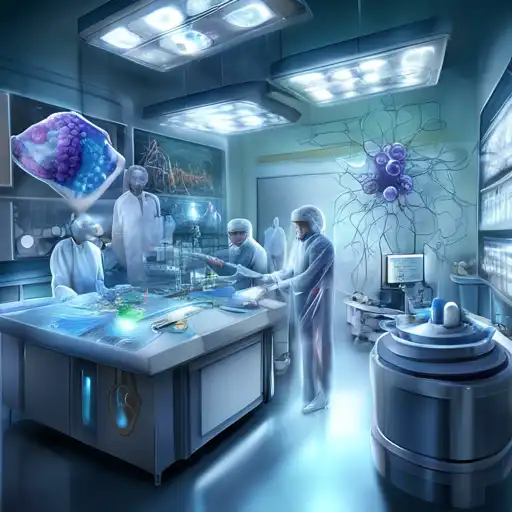Revolutionizing Healthcare: The Impact of Nanotechnology in Medicine
Nanotechnology, the science of manipulating matter at the atomic and molecular scale, is set to revolutionize the medical field. With its potential to diagnose, treat, and prevent diseases at a cellular level, nanotechnology in medicine is indeed the next big thing. This article explores the groundbreaking advancements and the future prospects of nanotechnology in healthcare.
Understanding Nanotechnology in Medicine
Nanotechnology involves the use of nanoscale materials, typically less than 100 nanometers in size, to interact with biological systems. These materials can be engineered to perform specific tasks within the body, offering unprecedented precision in medical treatments.
Current Applications of Nanotechnology in Medicine
Today, nanotechnology is being used in various medical fields, including drug delivery, cancer treatment, and diagnostics. For instance, nanoparticles can deliver drugs directly to cancer cells, minimizing side effects and improving treatment efficacy.
- Drug Delivery: Nanoparticles can target specific cells or tissues, ensuring that drugs are delivered precisely where they are needed.
- Cancer Treatment: Nanotechnology enables the development of therapies that can identify and destroy cancer cells without harming healthy tissue.
- Diagnostics: Nanosensors can detect diseases at their earliest stages, significantly improving patient outcomes.
The Future of Nanotechnology in Medicine
The potential applications of nanotechnology in medicine are vast. Researchers are exploring its use in regenerative medicine, where nanomaterials could help repair or replace damaged tissues and organs. Additionally, nanotechnology could lead to the development of personalized medicine, where treatments are tailored to the individual's genetic makeup.
Another exciting prospect is the use of nanotechnology in combating antibiotic-resistant bacteria. By designing nanoparticles that can target and kill resistant bacteria, we could overcome one of the biggest challenges in modern medicine.
Challenges and Ethical Considerations
Despite its potential, the use of nanotechnology in medicine faces several challenges, including safety concerns, regulatory hurdles, and ethical issues. Ensuring the biocompatibility of nanomaterials and addressing potential long-term effects are critical for the successful integration of nanotechnology into healthcare.
Moreover, the ethical implications of such advanced technologies must be carefully considered. Issues such as privacy, consent, and access to nanotechnology-based treatments need to be addressed to ensure equitable benefits for all.
Conclusion
Nanotechnology in medicine holds the promise of transforming healthcare by enabling more precise, effective, and personalized treatments. While challenges remain, the ongoing research and development in this field are paving the way for a future where nanotechnology plays a central role in medicine. As we continue to explore the possibilities, it's clear that nanotechnology is not just the next big thing—it's the future of medicine.
For more insights into the future of healthcare, explore our articles on the future of medicine and innovations in healthcare.
